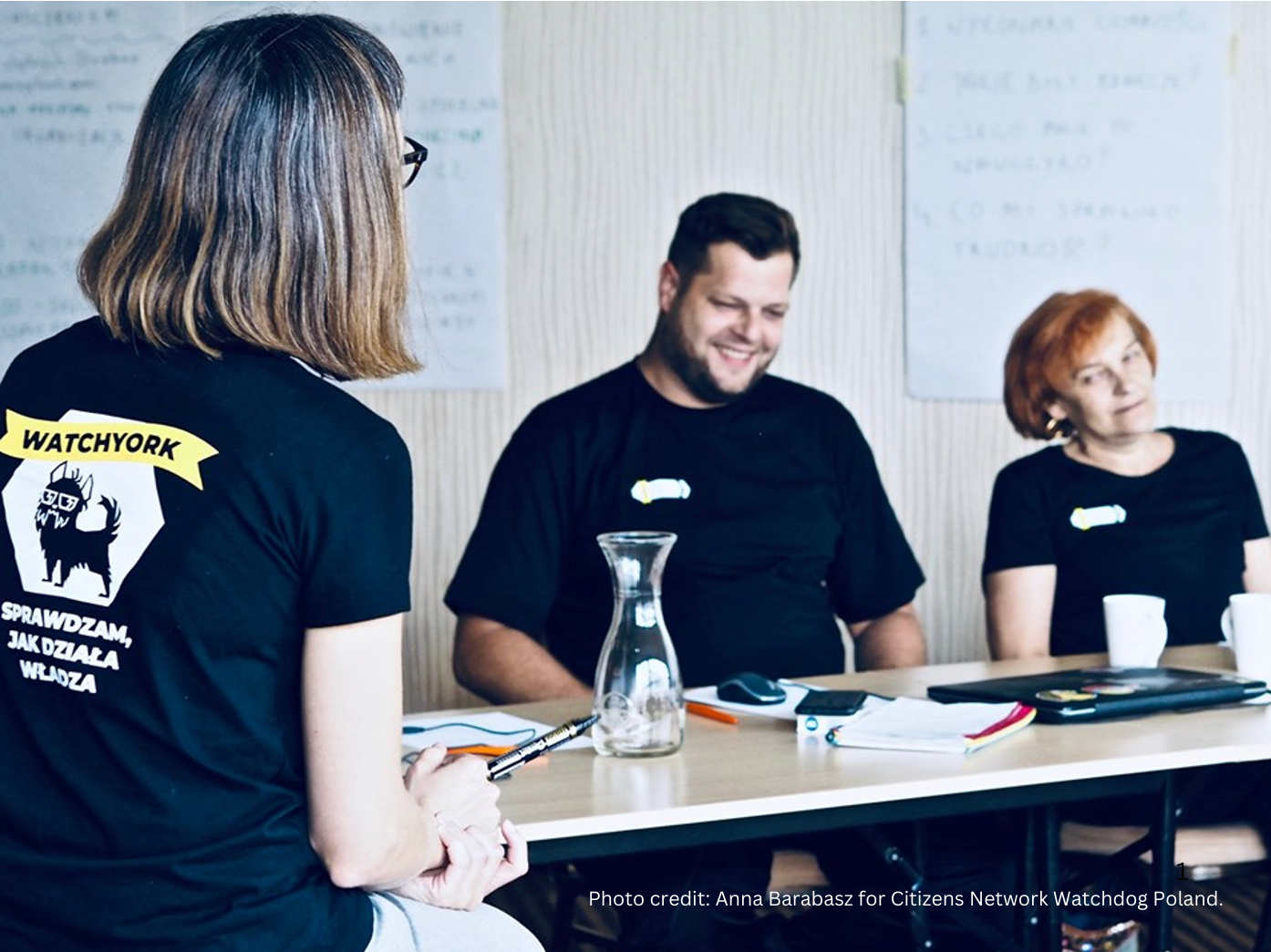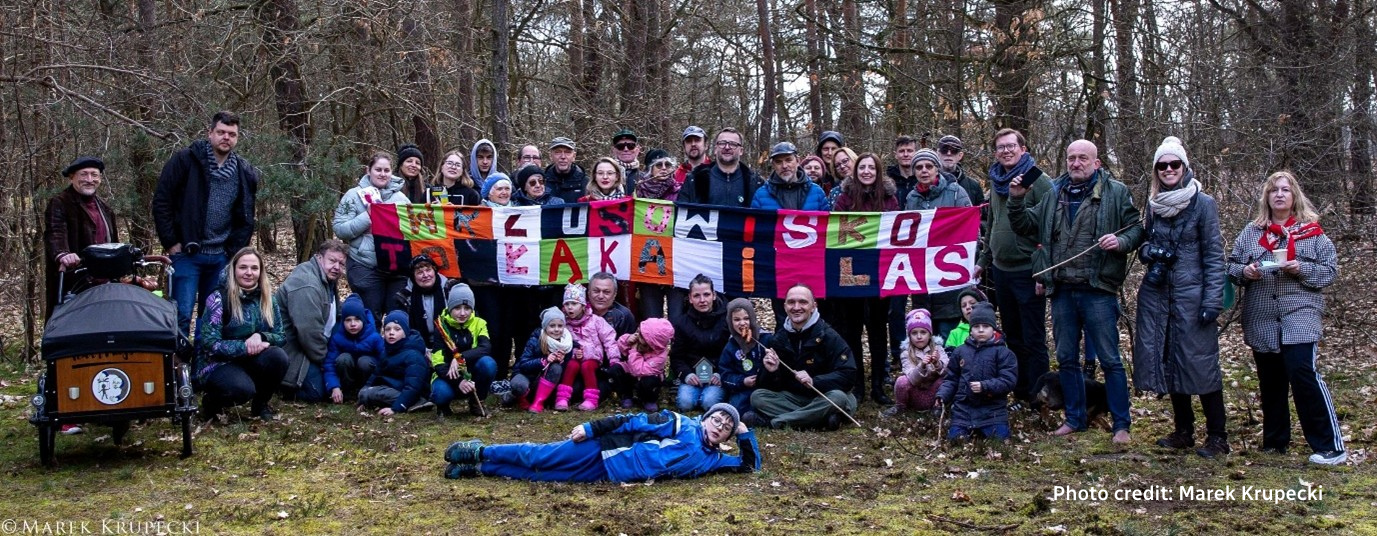Watchdog School: Empowering Local Activists for Transparency in Poland
Author: Joanna Kopacka
Accountability and transparency form the backbone of a healthy democracy, and local activists who hold authorities accountable play a vital role in making it work. In Poland, these dedicated watchdogs advocate residents’ participation in budgeting and decision-making, keep a close eye on the actions of officials, and ensure public funds are spent transparently. Beyond pushing for immediate improvements, they show others that positive change is possible at the municipal level, inspiring wider civic engagement.
The Citizens’ Network Watchdog Poland (CNWP) has recognized the importance of supporting this crucial yet often informal movement of local activists. Most of Poland’s watchdogs are individuals or small informal groups, balancing their activism with other professional commitments. Lacking the time and resources of formal organizations, they often work in their spare time to build expertise and reach others. Independent and sustainable support is essential for these activists to succeed in their work.

The School of Watchdog Initiatives—a program run by CNWP and supported by the Engaging Central Europe program of the German Marshall Fund of the United States and the US Agency for International Development—aims to meet the need for such support. For eight years, this initiative has provided local watchdogs with the legal knowledge, networking opportunities, and practical tools necessary to promote good local governance. Each year, the six-month program trains approximately 20 activists, equipping them to advocate transparency and accountability in their communities.
Training a New Generation of Watchdogs
The School of Watchdog Initiatives focuses on practical legal education and strategic advice, offering participants courses on public access to information, municipal budgets, environmental issues, and urban policies. These insights are complemented by training in communication and data-presentation skills. The real strength of the program, however, lies in the opportunities it provides for activists to collaborate on joint monitoring projects. During the 2023 edition, participants split into five teams to address systemic issues, including cross-sector collaboration between civil society organizations and municipalities, tap water-health assessments, urban planning strategies, and animal care.
Local Impact and Success Stories
Graduates of the School of Watchdog Initiatives emerge with the confidence to take on larger advocacy roles within their communities, often inspiring others to do the same. For instance, Łukasz, an activist from Brwinów, began his journey by organizing residents to protest against the construction of a problematic supermarket. Through the school, he expanded his efforts, hosting sessions on effective watchdogging and municipal policymaking. In the spring of 2023, Łukasz trained 70 residents and recruited over 30 volunteers to help safely relocate frogs from a road to their natural habitat. His work culminated in a professional report submitted to the Regional Directorate of Environmental Protection.
Similarly, Paulina, a participant from Ciechocinek, has been actively involved in monitoring climate-protection efforts in the Kujawsko-Pomorskie region. When the municipality of Toruń refused to release a report on the environmental risks of building on local heathlands, Paulina intervened. After participating in the school, she joined public debates on local governance and launched a petition demanding the release of council meeting recordings.

Expanding the Reach of Activism
In 2023, the School of Watchdog Initiatives successfully recruited activists from 11 out of Poland’s 16 regions, including areas where civic engagement is typically lower. These local watchdog activists play a crucial role in holding public authorities accountable—whether by ensuring the latter follow regulations, exercising the right to information, or participating in public dialogues. Thus, for the eighth consecutive year, the school helped participants turn the rule of law into a lived, practiced reality.
